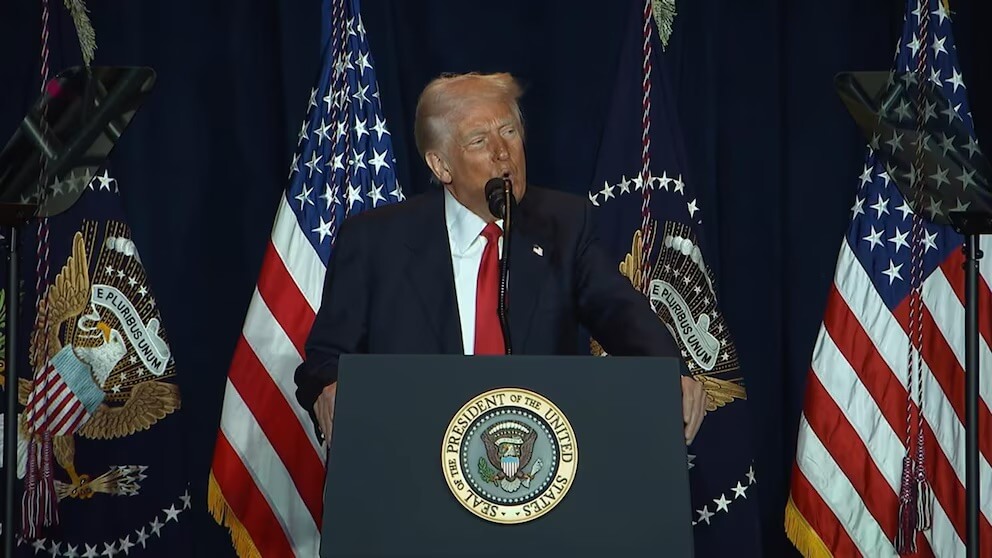By Taimoor Shah
Trump’s unilateral decision to negotiate an end to the Russia-Ukraine war and impose tariffs as part of his “America First” foreign policy is putting an end to U.S. unipolarity, and undermining the long-standing partnership with European countries, which was one of the strong pillars of the unipolar world order.

On the other hand, the Sino-Russian quasi-alliance has the potentiality to transform the world order and put an end to US hegemony in global politics.
Trump 1.0
During his first mandate as President of the United States, Trump aimed to reshape the US foreign policy, disrupt alliances, challenge international institutions and strive to make America great again, while undermining Washington’s role in international politics. U.S. withdrawal from Paris Agreement, World Health Organization, and on security issues, such as the partnership with Japan and the funding of US troops in South Korea raised serious concerns.
In contrast, the Joe Biden administration reaffirmed the US support for its partner countries and global issues. He strengthened defense and economic relations with partners with the aim to maintain the U.S. dominance by containing China, Russia, and BRICS.
The Pillars of US Unipolar World Order
Most certainly, the considerable US internal power capabilities established the unipolar world order. The Bretton Woods-based institutions (IMF, World Bank & WTO) strengthened the US liberal economy and capital-democracy in the world. These institutions have played a vital role in establishing and preserving a unipolar world order. Washington has used these institutions for power projection through economic sanctions, dollar hegemony and pressure on rival states.
Furthermore, according to realist thought, military power (internal power and external power such as alliances) is the main power of the state. It allows the state to exercise defensive and offensive behavior in the international system. The US is the largest military power in the world, with several military alliances, such as NATO, Quad, 12U2, and BECA. It has installed around 750 military bases and deployed troops in 80 countries around the world. Therefore, enormous military power and alliances preserved its unipolar world order.
Moreover, during the Cold War era, the policy of ‘rivals containment’ also shaped US dominance on global politics. It has remained a beneficial and successful strategy of Washington against its rival countries. It did not only standstill communism expansion but also disintegrated the USSR. However, in the post-Cold War era, such a policy also proved its effectiveness in maintaining status-quo power, and it has been adopted to counter the rise of China, Russia, Iran, North Korea, and BRICS.
Furthermore, Washington’s superiority in technological innovation has also increased its power capabilities. The US is home to the world’s largest tech giants, such as Microsoft, Meta, Apple, Amazon, and so on. The US also leads the world in space technology (NASA), Artificial Intelligence (AI), cybersecurity, quantum computing, and armed technology. According to the World Bank, the US is the second largest investor in Research and Development (R&D) by investing 3.4% of its GDP.
Trump 2.0: America First Foreign policy and Alienation from Europe
Trump’s policy of ‘America First’ is distancing the US from established institutions, international agreements, and long-standing partners (especially the UK, European Union and Canada), which supported and strengthened US status-quo power in the world. Recently, actions of President Trump over unilateral negotiation with Russia to ink a peace deal between Russia and Ukraine to end the war, and his comments on Vladimir Putin have quivered the European leaders, and Canada. It seems Trump favors unilateral decision-making, and he believes his expertise in decision-making would promote US interests on behalf of its own perception rather than depending on the institutional wisdom of technocrats.
Recent remarks by President Trump on annexing Greenland to the US, claiming control of the Panama Canal, transforming Canada into the 51st state of the US, and concluding a peace deal in the Russia-Ukraine war without taking into account the stance of Ukraine and Europe have caused a stir. Trump’s policies prioritizing national interests over multilateral cooperation and partnership are undermining the United States’ global hegemony and prestige. However, other analysts believe that Trump is only following in the footsteps of his predecessors, such as Theodore Roosevelt and Richard Nixon, who prioritized national interest over multilateral cooperation.
In Trump’s America First mentality, traditional international rules do not apply and world issues are not U.S. issues, on the contrary, issues such as the Russia-Ukraine war, climate change and others are considered only as a burden on the US economy. In February, U.S. Vice President JD Vance made it clear that in Trump’s America First policy, European nations are not seen as partners. As a consequence, European countries feel that they must now strengthen their defense position because they can no longer trust Washington and rely on its security guarantees.
Europe finds itself at a turning point in its history: the decades-long US security shield is crumbling under the “America First” foreign policy. Trump sees international politics as a zero-sum game because he believes that the United States is being unfairly exploited, spending billions of dollars of funds without getting anything in return. Therefore, he threatened to suspend aid to Ukraine and planned to impose tariffs on Canada and Europe,
The British Prime Minister, Keir Starmer, called European leaders to guarantee Ukraine’s security and define a peace proposal for the war between Russia and Ukraine. However, European leaders had contrasting reactions to this call. French President Emmanuel Macron, Slovak Foreign Minister Juraj Blanar and German Chancellor Olaf Scholz welcomed it as a significant step towards peace. Others, such as Finnish President Alexander Stubb and Portuguese Prime Minister Luis Montenegro emphasized that Europe should be involved in the peace negotiations. Indeed, the exclusion of Europe from the current talks for a cease of fire further increases the alienation between the United States and Europe. On the other side it can be noticed that there is a lack of consensus within the EU on the negotiation process.
The US claim on Greenland, territory of Denmark, a NATO member, is further increasing European tension, because according to NATO’s Article 5, “an attack on one is an attack on all”. But how could NATO’s response if the US will try to annex Greenland by force? The long-standing partnership between the United States and Europe has reached an abstruse situation that brings them to the brink of alienation. Currently, Europe could be compelled to face serious challenges that threaten its security in an emerging multipolar world without security guarantees from the United States.
Trump 2.0: Impacts on World order
With his “America First” foreign policy, President Trump seems to be following through on the promises he made before the presidential election. However, many scholars have argued that his policies are weakening an already fragile unipolar world order. The unipolarity was established by the extraordinary support of the European countries during the Cold War, and they also relentlessly supported the status quo power of the US to prevent the dominance of the East. Francis Fukuyama claimed in his 1989 essay “The National Interest” that “the triumph of the West, of the Western idea, is evident first and foremost in the total exhaustion of viable systematic alternatives to Western liberalism,” and he reiterated his claim after the 9/11 incident, even recognizing the threat to the liberal world order.
Trump 2.0 is not only disengaging the US from the liberal world order, he is also disrupting it. The revival of the Monroe Doctrine and the trade war with his allies are stifling unipolarity and offering his rival the opportunity to shape a new world order. The alliance between the United States and Europe has remained one of the strongest pillars of the status quo’s power, but now the sour relations on both sides of the Atlantic will increase the unprecedented challenges to the liberal world order. Without the support of Europe, the United States could not guarantee its position and its dominance in global politics.
The unipolar world order of the United States has been threatened by China, Russia and BRICS. Now, perhaps also France, Canada, Saudi Arabia, and other countries are leaning towards a multipolar world order. It is to note that a divide within the West and a change in behavior of EU members, such as increased cooperation with China, would put an end to the unipolar world order of the United States. The recent Munich Security Conference 2025 acknowledged the reality of a multipolar world order and the fact of the growing influence of new international players and the BRICS in world politics. The conference also emphasized that Trump’s “America First” foreign policy has buried the liberal post-Cold War world order and is also pushing the EU to become a polar player in the multipolar world.
Axis of US Rivals
China has been actively exerting its influence on world politics, and this rift between the US and Europe is an opportunity for Beijing to fill the power vacuum through its economic-centric approach such as the Belt and Road Initiative (BRI). Russia and China have forged a strong partnership in their history of friendship, which is another alarming threat to US dominance and world order. Both nations have also strengthened their partnership with many emerging countries, but most conspicuously with Iran and North Korea. The recent toxic relationship between the U.S. and Europe will further strengthen China’s advocacy of multipolarity, and it could benefit from a split in this historic partnership.
In short, the shift in power distribution and the strengthening of the power capabilities of the revisionist states have already transformed total unipolarity into partial unipolarity. However, the growing quasi-alliance of rival countries against the unipolar world order and Trump’s “America First” approach are bringing the global dominance of the United States to an end. The USA-Europe partnership, the strongest pillar of the unipolar world order, is now on the verge of breaking up. Therefore, recent significant developments in world politics are laying the foundations for a multipolar world order.
Author: Taimoor Shah – MPhil scholar in International Relations. He is an independent researcher/writer on International Affairs. His area of interest covers World Politics, World Order, Foreign Policy of Great Powers and Middle East Politics.
(The opinions expressed in this article are solely those of the author and do not necessarily reflect the views of World Geostrategic Insights).







